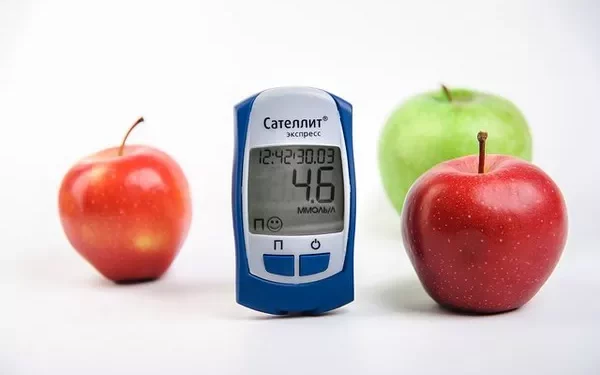Managing diabetes requires making mindful choices about the foods we eat. One of the most crucial components of diabetes management is controlling blood sugar levels, and diet plays a key role in achieving this goal. While fruits are a rich source of vitamins, minerals, fiber, and antioxidants, they also contain sugars that can impact blood glucose levels. However, not all fruits are equal in terms of their effect on blood sugar.
Some fruits have a minimal effect on blood sugar, and incorporating them into your diet can provide a wide array of health benefits without causing spikes. These fruits are often low on the glycemic index (GI), meaning they release glucose slowly into the bloodstream, helping to keep blood sugar levels steady. In this article, we will explore a variety of fruits that are less likely to spike blood sugar levels, making them ideal choices for individuals with diabetes or anyone looking to manage their glucose levels more effectively.
Understanding Blood Sugar and the Glycemic Index
To fully appreciate which fruits are less likely to spike blood sugar, it’s important to understand the concepts of glycemic index (GI) and glycemic load (GL). The glycemic index is a measurement of how quickly carbohydrate-containing foods raise blood glucose levels. Foods with a high GI (above 70) cause a rapid increase in blood sugar, while foods with a low GI (below 55) have a slower, more gradual effect on blood sugar.
Glycemic load (GL) goes one step further by taking into account the serving size of the food. While the glycemic index can provide insight into how fast a food raises blood sugar, glycemic load gives a more complete picture by incorporating both the quality and quantity of carbohydrates in a food.
For example, watermelon has a high GI, but a small serving size means its glycemic load is relatively low. On the other hand, foods with a low GI and GL, such as many berries, have a lesser impact on blood sugar levels.
For diabetics, choosing fruits that are both low in GI and GL can help prevent blood sugar spikes and maintain more stable glucose levels throughout the day. In this article, we will focus on fruits that are excellent choices for individuals with diabetes and anyone seeking to maintain healthy blood sugar levels.
Fruits That Don’t Spike Blood Sugar
1. Berries (Strawberries, Blueberries, Blackberries, Raspberries)
Berries are among the best fruit choices for diabetics, as they are not only low in sugar but also rich in fiber, antioxidants, and essential nutrients. The high fiber content in berries slows the absorption of sugar, reducing the likelihood of blood sugar spikes.
Strawberries: A cup of sliced strawberries contains only about 50 calories and 7 grams of sugar. The glycemic index of strawberries is relatively low (GI of 41), making them an ideal fruit for diabetics. Additionally, strawberries are packed with vitamin C, which is important for immune function.
Blueberries: Blueberries are another excellent choice, with a GI of 53. A half-cup serving contains about 40 calories and 5 grams of sugar. They are particularly rich in anthocyanins, antioxidants that may improve insulin sensitivity and reduce inflammation.
Blackberries: Blackberries are also a good option, offering a GI of 25, which is considered low. A half-cup of blackberries contains around 30 calories and 4 grams of sugar. They are high in fiber, which helps regulate blood sugar levels.
Raspberries: With a GI of 32, raspberries are among the lowest-glycemic fruits. A half-cup of raspberries provides only about 30 calories and 5 grams of sugar. They are also an excellent source of vitamin K and manganese, both of which are important for bone health.
Berries, in general, have a low glycemic load (GL), making them safe to consume for blood sugar control. Their fiber content also contributes to a feeling of fullness, which can help prevent overeating and promote overall health.
2. Cherries
Cherries are a delicious fruit that also has a minimal impact on blood sugar. With a glycemic index of 22, cherries are classified as low-GI. A cup of cherries contains about 87 calories and 18 grams of sugar, but their low GI means that the sugar is absorbed gradually into the bloodstream.
Cherries are also rich in antioxidants, particularly anthocyanins, which have been shown to improve insulin sensitivity and reduce inflammation. Additionally, cherries contain melatonin, which can help improve sleep quality—a crucial aspect of diabetes management.
3. Kiwi
Kiwi is a nutrient-dense fruit with a GI of 52, making it a moderate-GI fruit. However, kiwi is low in sugar, with just 6 grams per medium-sized fruit. It is packed with fiber (about 2 grams per fruit), which helps regulate blood sugar levels and aids digestion.
Kiwi is also rich in vitamin C, potassium, and antioxidants. Studies suggest that eating kiwi may help improve blood sugar control by enhancing insulin sensitivity. Due to its low sugar content and fiber-rich composition, kiwi is an excellent fruit choice for diabetics.
4. Apples (in Moderation)
Apples are a common fruit that can be part of a healthy diet for people with diabetes. They contain about 19 grams of sugar per medium-sized fruit, but their GI is relatively low (GI of 36), meaning they don’t cause rapid spikes in blood sugar. The fiber in apples, particularly the skin, helps slow the absorption of sugar and improve glycemic control.
Apples are also a good source of vitamin C and antioxidants, which promote overall health. While they are a slightly higher-sugar fruit compared to berries or cherries, their low glycemic index and fiber content make them a safe choice for most diabetics when eaten in moderation.
5. Pears
Pears are another fruit with a low glycemic index (GI of 38) and a relatively low glycemic load. A medium-sized pear contains about 17 grams of sugar and 100 calories. Pears are an excellent source of dietary fiber, with around 6 grams per medium fruit. This high fiber content helps slow the release of glucose into the bloodstream, preventing rapid spikes in blood sugar.
Pears are also rich in vitamins C and K, which are essential for immune function and bone health. Their mild sweetness and crunchy texture make them a satisfying snack for people with diabetes.
6. Plums
Plums are a nutritious, low-GI fruit with a GI of 39. A medium-sized plum contains about 30 calories and 8 grams of sugar. Plums are rich in vitamins A and C, as well as potassium and fiber, all of which contribute to overall health and help regulate blood sugar levels.
Due to their fiber content, plums have a relatively low glycemic load, which means they are unlikely to cause significant spikes in blood sugar. Their sweet, tart flavor also makes them a delicious and satisfying fruit choice.
7. Peaches
Peaches are a juicy, low-calorie fruit with a moderate glycemic index (GI of 42). A medium-sized peach contains about 13 grams of sugar and 58 calories. While peaches have a higher glycemic index than some other fruits on this list, they are still considered to have a relatively low impact on blood sugar levels when consumed in moderation.
Peaches are a good source of vitamins A and C, both of which support immune health. Their fiber content helps slow the absorption of sugar, which is particularly beneficial for blood sugar control.
8. Grapefruit
Grapefruit is a citrus fruit with a low glycemic index (GI of 25), making it an excellent choice for diabetics. A half of a medium-sized grapefruit contains about 52 calories and 8 grams of sugar. Grapefruit is rich in vitamin C, potassium, and antioxidants, all of which help improve overall health and may contribute to better blood sugar management.
Grapefruit has been shown to have a positive effect on insulin sensitivity, which is particularly important for individuals with type 2 diabetes. However, grapefruit can interact with certain medications, so it’s important to consult with a healthcare provider before adding it to your diet.
9. Avocados
Although technically a fruit, avocados are unique in that they are low in sugar and high in healthy fats. A medium avocado contains about 234 calories but only 1 gram of sugar. Avocados are packed with monounsaturated fats, which help reduce inflammation and improve insulin sensitivity.
The high fiber content in avocados also helps regulate blood sugar levels by slowing the absorption of glucose into the bloodstream. As a result, avocados are a great option for individuals with diabetes who are looking for a blood sugar-friendly fruit.
How to Include These Fruits in Your Diet
Incorporating low-glycemic fruits into your diet is a simple and delicious way to manage blood sugar levels. Here are a few tips for including these fruits in your meals:
Fruit Salad: Mix a variety of low-GI fruits, such as berries, kiwi, and apple slices, for a refreshing fruit salad. Add a small amount of yogurt or a sprinkle of chia seeds for extra fiber and protein.
Smoothies: Blend together low-sugar fruits like berries, avocado, and spinach to make a nutrient-packed smoothie. Use unsweetened almond milk or coconut water as the base for a diabetic-friendly drink.
Snacks: Keep a portion of grapes, cherries, or sliced pears in the fridge for a quick and satisfying snack. Pairing fruit with a small amount of protein, such as a handful of nuts or a slice of cheese, can help stabilize blood sugar levels.
Desserts: Opt for fruit-based desserts, like baked apples or poached pears, for a naturally sweet treat. You can use cinnamon or a dash of vanilla to enhance the flavor without adding extra sugar.
Conclusion
Fruits are an important part of a healthy, balanced diet, even for those managing diabetes. While some fruits can cause rapid spikes in blood sugar, many fruits are low on the glycemic index and glycemic load, making them excellent choices for diabetics. Berries, cherries, kiwi, apples, and other low-sugar fruits can be enjoyed in moderation, providing essential nutrients and antioxidants without causing harm to blood sugar levels. By making mindful fruit choices and incorporating these options into your daily diet, you can successfully manage your diabetes and improve your overall health. Always consult with a healthcare provider or dietitian before making significant changes to your diet to ensure that your fruit choices align with your individual needs.
Related topics:
Can Sugar Patients Eat Boiled Eggs?



























